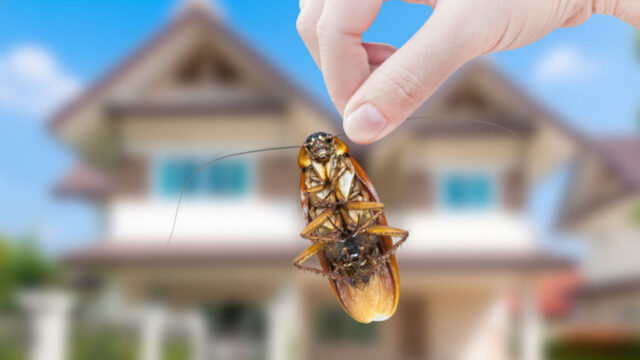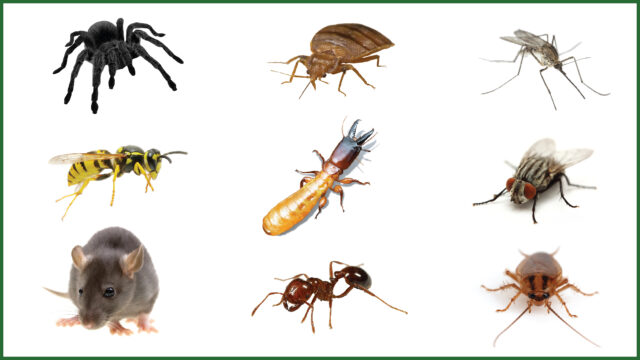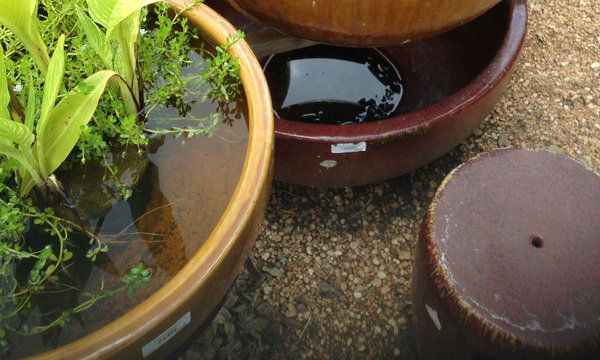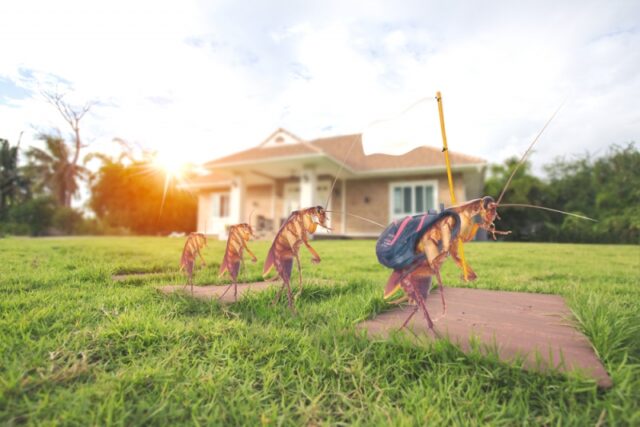
Pests are a nuisance in both commercial and residential properties. They can destroy valuable possessions or, worse, spread diseases to occupants. The typical household pests you might come across in your property include cockroaches, ants, stink bugs, rodents, carpet beetles, meal moths, silverfish, and fruit flies.
Below, you will learn various ways to deal with pests in your property. To fight bugs in your house, you can take the following steps:
7Identify the Pests

All preventive measures for pests are similar. It is, therefore, essential to begin by identifying the pests that have invaded your property to come up with the correct pest control technique. Foods such as ripe melon attract fruit flies in huge numbers. Focus on removing such foods or consume them on time to avoid entertaining pests in your property.
6Use Pest Control Products
It is suitable to apply the preventive measures before the pest invasion, but if you notice them when it’s too late, you can use less toxic pesticides to rid them.
You need to get a suitable one for the pests you want to control. That can be a challenging task for most people since some pesticides are hazardous and can cause health problems. It is wise you involve professionals who use pest control products with low toxicity and traps. To learn how professionals control pests while leaving no chemical vapors and residues behind visit here.
Environmentally-friendly pest control is safe for pets, humans, and plants. You can use dust boric acid on crevices and cracks to poison crawling insects such as lizards, ants, silverfish, and cockroaches. The acid is only poisonous to insects and less toxic for humans.
You may also use tamper-resistant bait boxes since they are safer than pallets, powder, or sprays, which spread pesticide residues. Experts recommend the use of the boxes in storage areas of cookery, food, or pallets. It is advisable to use bait boxes that use non-volatile chemicals such as boron. Ensure to keep them out of reach of both pets and children.
You can also try fatty-acid soaps or insecticidal to kill soft-bodied insects such as mites and fleas on contact. They are harmless to mammals and humans, not unless ingested.
5Eliminate Stagnant Water

Even after removing foods that attract pests in your property, it is essential to remember that insects and rodents can still survive in your home if there is stagnant water around. Begin with fixing any leaking pipes in the kitchen or bathroom. Keep these areas as dry as possible to eliminate the pests living in your house.
4Store Food in Containers and Keep your Kitchen clean
Foods attract pests in huge numbers. Unsealed grains in the kitchen can attract mealy moths while flies and cockroaches will feed on any crumbs available. A clean dining room and kitchen can play a considerable role in riding pests off your home.
- If there are spills around, use soapy water to clean them. A dish or paper towel alone is not enough. Unplug your toaster regularly to clean any crumbs.
- Use plastic containers or sealed glass to store your food. Containers with lids that clamp shut are the best compared to screw-on covers.
- Store rice, ripe fruits, and any other long-term foods in the refrigerator.
- Keep pet food in a seal garbage can to keep off rodents.
- Wash your dishes regularly, and if you are busy, you can submerge them in soapy water.
- Use sealed garbage cans and take the trash out daily. Make sure you clean the box after emptying it.
3Always Keep Your Residence Clean and Clutter-free

That is the best way to remove any nesting places for insects and their eggs. Vacuum the affected areas regularly using a crevice tool. Once complete, use a sealed plastic bag to dispose of the vacuum cleaner bag to prevent collected pests from escaping.
If you have pets in your house, wash and comb them regularly. If you notice fleas, seek advice from your veterinarian to choose the right flea control products. Most pests hide in clutter such as stacks of magazines, cardboard or newspapers.
Unplug appliances to clean them, sweep the area beneath them, and then use a damp rag to wipe them down. Before reconnecting the appliances, ensure they are dry to avoid electrical issues. Use sealed plastic bags or boxes to store clothing and linens to protect them from moths and prevent rodents from making their homes in the clothing items.
2Seal All Access to your Home
Poorly sealed doors and windows cracked walls, and floorboards make it easy for pests to enter your house. If you wish to keep your house free from pests, seal all entry points.
- Silicone caulk is suitable for sealing cracks and crevices in baseboards, cupboards, ducts, pipes, toilets, sinks, or electrical outlets.
- Rodents often get into homes by climbing through the heating and cooling vents. Place a screen in front of the vents and repair holes in the existing screens.
- Keep vegetation, stacked firewood, and any other debris at least 2 feet from your house and install weather-stripping and screens on windows and doors.
- Make sure all crevices, cracks, and gaps around pipes and any other access points on the walls of your house are well sealed.
1Use Volatile Pesticides When Necessary

Handle volatile pesticides with caution, since they are dangerous. Use them to target specific threats, but not frequently. Read the label carefully to ensure you have the right pesticide, and you are using it correctly.
Before spraying the pesticide, remove dishes, pans, pots, and food. Give the spray time to dry before replacing it.
If there is over one pest in your house, go for broad-spectrum pesticides since they kill many pests, but if it is a specific pest, get a selective insecticide. Go through the directions for use to ensure the product can work for you.
Do not use outdoor pesticides in enclosed places since they are volatile and can last for an extended period. Also, ensure there is enough ventilation by opening windows and doors and running fans. However, if the pesticide requires an unventilated room, ensure no pets are in the vicinity when applying it.
Once you complete spraying the house, do not dump the leftover pesticides down the drain or in the garbage. You can also seek advice from your local public works department on how to dispose of the leftovers.
A pest invasion is devastating. If you notice a few cockroaches or rodents in your home, take action immediately before they take over the house. Dry stagnant water in the bathroom and fix any leaks in the kitchen. Store food in plastic containers, and clean the kitchen, including the appliances.
Seal all entry points in the house to keep off the pests. It is also advisable to hire a certified pest control firm like Toxic Respond to help you eliminate the pests. With that done, you will not have to worry about pests in your home anymore.







